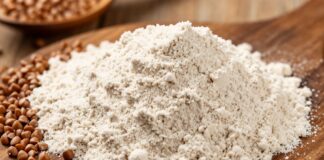Many of us incorporate dietary supplements into our daily routines, whether it be vitamins, minerals, herbs, or other products, in the pursuit of better health. The allure of natural ingredients can lead us to believe that these supplements are always safe. However, it is crucial to understand that just because something is labeled as “natural,” it does not mean it is without risks, especially when combined with medications.
How Supplements Interact with Medications
The interaction between supplements and medications is a complex and potentially dangerous issue that many individuals may not be aware of. Some supplements have the ability to alter the way our bodies process medications, leading to unexpected or harmful outcomes.
Certain supplements have the capacity to accelerate the breakdown of medications in our bodies, resulting in a reduced efficacy of the drugs. On the other hand, some supplements can slow down this process, causing medications to linger in the body for an extended period, increasing the likelihood of experiencing side effects.
For instance, herbal St. John’s wort supplements, often utilized for mood disorders, can expedite specific bodily processes. This acceleration can hinder the proper functioning of medications like birth control pills, antidepressants, blood thinners, and certain cancer treatments. Similarly, concentrated green tea extract may interfere with medications used to treat heart conditions and other chronic diseases, posing severe risks to individuals undergoing treatment for these conditions.
Gaining Knowledge Before Making Choices
To make informed decisions regarding herbal supplements and natural products, it is essential to arm yourself with knowledge. The National Center for Complementary and Integrative Health’s (NCCIH) Herbs at a Glance series offers clear, evidence-based information about popular herbs and botanicals. Understanding the research behind these supplements can empower you to make more informed choices about your health.
Prioritize Communication with Healthcare Providers
In order to safeguard your health and ensure that your treatments are working as intended, it is crucial to maintain open communication with your healthcare providers. Keeping them informed about all medications, supplements, and herbal remedies you are using is vital in preventing potentially harmful interactions.
Understanding the Science Behind Interactions
For those looking to delve deeper into the science behind supplement and medication interactions, the NCCIH provides a valuable resource called Know the Science: How Medications and Supplements Can Interact. This digital tool offers insights into the risks associated with these interactions and provides practical advice on various aspects, such as the importance of discussing your regimen with healthcare professionals, how supplements can affect medication effectiveness, common interactions to be cautious of, and tips on deciphering supplement labels.
Challenging Your Knowledge
Think you have a good grasp on medication-supplement interactions? Put your knowledge to the test with a short quiz to assess your understanding of the risks involved. It’s a fun and interactive way to ensure that you are equipped to make informed decisions about your health.
In conclusion, the relationship between supplements and medications is intricate and can have significant implications for your health. By educating yourself, maintaining open communication with your healthcare providers, and being vigilant about potential interactions, you can ensure that you are prioritizing your well-being and maximizing the effectiveness of your treatments.


















